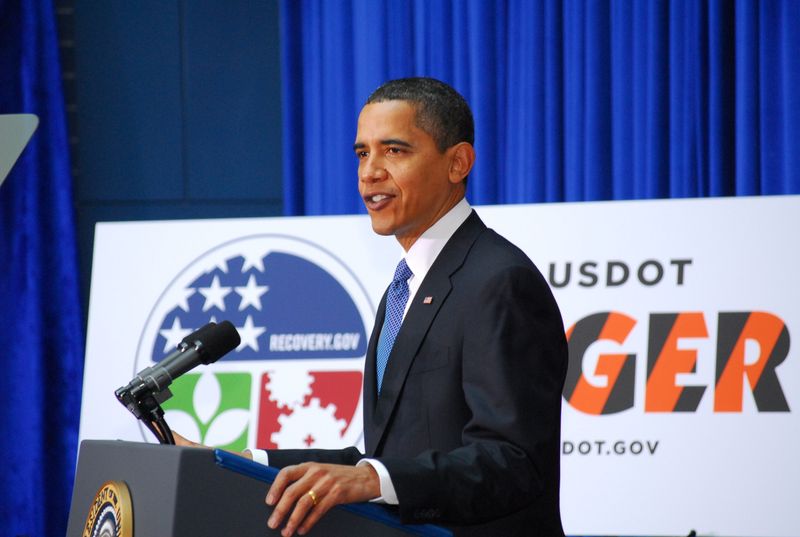A Reply to The President's Defenders

Jared Bernstein has posted a defense of President Obama's economic record at CNN.com against my criticism, also on CNN.com.
The story so far:
Last week, Jonathan Alter asked Obama's critics to cite specific mistakes in President Obama's economic management.
I named 3:
1) A badly designed fiscal stimulus
2) Failure to mobilize the Federal Reserve to act boldly enough on monetary policy.
3) The lack of a Plan B after it became apparent that the fiscal stimulus was not succeeding.
Bernstein replies in considerable detail, which I'll address point-by-point. First, I have to address the core fallacy in Bernstein's defense.
Bernstein builds his argument on the assumption that I said the stimulus achieved nothing whatsoever. I didn't. If I thought stimulus was useless, I wouldn't complain about its design. There's no such thing as a good cement boat. There can be such a thing as good fiscal stimulus. But that's not what we got in 2009.
I don't entirely blame Bernstein for writing as he does. So many people have argued that the stimulus accomplished nothing that it must become almost a reflex in former administration aides to react against the criticism they have learned to expect. They knee kicks too fast for the ears to notice that something different is being said this time.
But I did say something different.
It's a staple of economics that different forms of government spending have different counter-cyclical effects. Public works spending has the strongest effect. One-time tax rebates have a weak effect. And so on. Now let's revert to my three-point critique.
Point 1 - Stimulus design. Only about one dollar in eight of the stimulus funds was dedicated to public works. The shovel-ready projects were not ready for the shovel after all, as the president himself later acknowledged. The preponderance of the nearly $800 billion appropriated for stimulus was spent in ways that the designers of the plan had to know would not do much counter-cyclical good: a big round of tax rebates, spending increases on pre-existing government programs like Pell grants, and aiding governments facing a surge in Medicaid costs.
Jared Bernstein denies that the administration abdicated in the face of Democratic congressional spending demands. Really? So why then did the plan take the weird and inadequate shape that it did?
Point 2 - Failure to mobilize the Federal Reserve. Between the fall of 2008 and the spring of 2010, the Fed acted boldly and decisively against the financial crisis. Then it paused, and the economy stalled. Jared Bernstein correctly notes that the Fed is independent. That does not mean that its leaders won't take a call from the President or Treasury Secretary to hear their views - or that the views will be disregarded if persuasive.
More to the point: the President left vacancies on the Federal Reserve Board of Governors. Yes, yes, I know: he faced Republican obstruction. Bernstein stresses that point, and it's fair. But in the end, it's an excuse. Presidents face obstruction, it's the nature of the job. On the other hand, President Obama did also have some clout on his side too. He had the largest partisan majorities in his favor of any president since Lyndon Johnson. He had a strong constituency in the country. Obstruction has to be overcome. If a president can't do it - that's just another way of saying the job is too hard for him.
Point 3 - Jared Bernstein responds to my observation that the Obama administration had no "Plan B" by citing a number of other measures adopted after the Recovery Act: measures to extend unemployment relief for example. I wholeheartedly endorsed the extension of unemployment coverage. And yes, unemployment insurance has a stabilizing effect on the economy, supporting some buying power that might otherwise vanish altogether. Bernstein also boldly cites the administration's mortgage relief plan, which takes some nerve, since the plan was a notorious botch.
But these are all small beer. Since passage of the recovery act in the spring of 2009, and up until whatever measures the president will urge in his joint session speech next week, the Obama administration has pushed only one large-scale additional stimulus measure: the partial payroll tax holiday of December 2010.
That was a good idea, in my opinion, and it's not the administration's fault that the benefit from the holiday was almost instantly absorbed by rising energy prices traceable to the spring 2011 commotions in the Middle East.
But here's what is the administration's fault, and this is the crux of my point 3: back in 2009, when the president still had political capital, he did not open the door to the possible need for additional measures. He did not tell the public that the economy would continue as Job #1. Instead, he insisted that the job had been done. His Vice President promised a "recovery summer" in 2010. Administrations can only do a few very big things at a time, and 2010 was the year that the Obama administration did healthcare and tried to do cap-and-trade.
The payroll tax holiday was advanced only after the Democrats had lost the House, only after the President was weakened by the disappointing result of the stimulus, and only as part of a deal for which the president made clear his distaste. Some Plan B.

